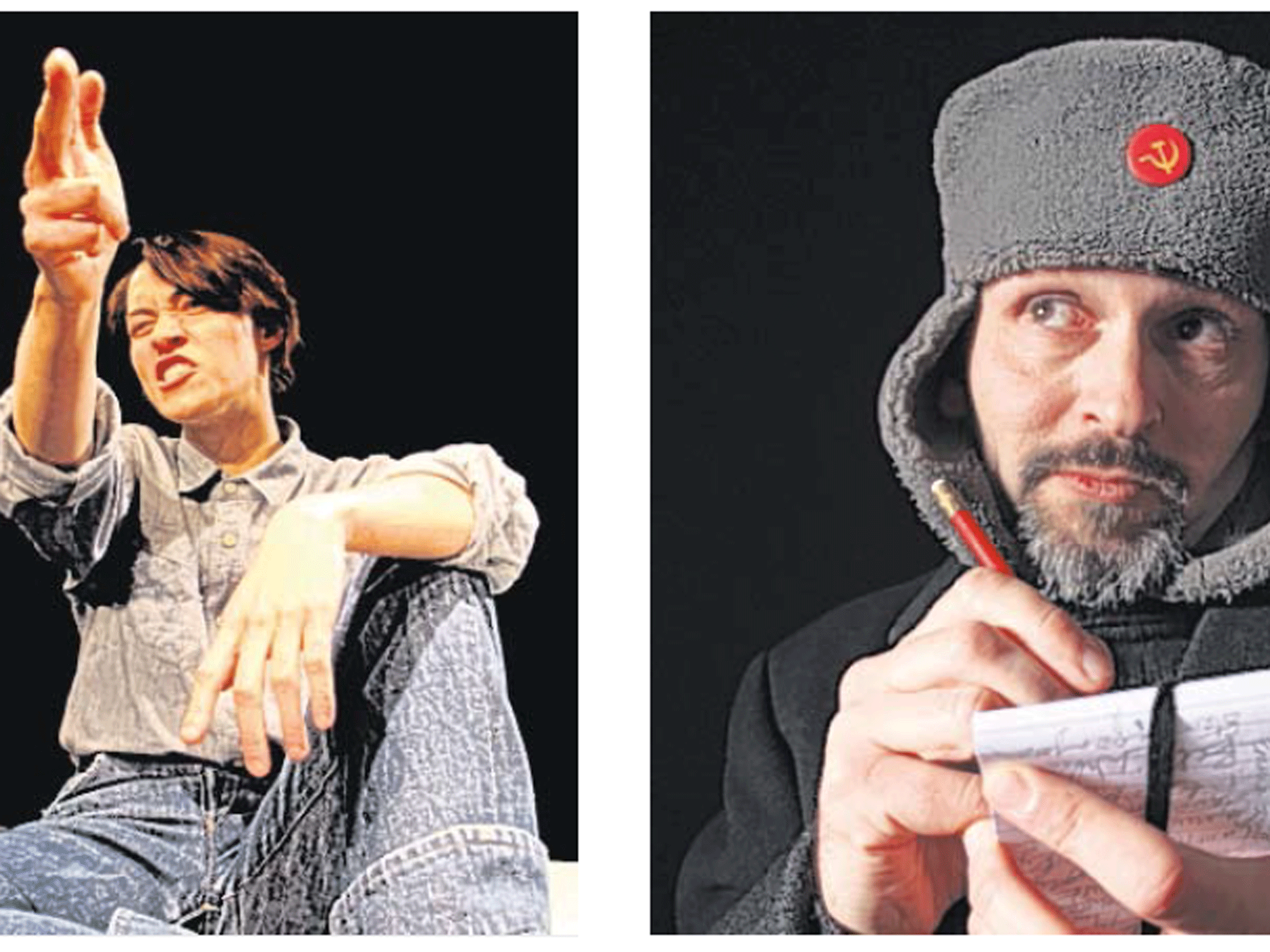The actors and actresses who want to be alone
A new season explores the highs of solo performance

Solo shows have a bad rep. When fringe theatre gets parodied, the image is often a lone actor droning on about some hobbyhorse subject. At the other end of the spectrum, are deranged, egotistical celebrities cashing in on their previous glories. Remember David Hasselhoff's one-man Edinburgh outing?
Even Simon Callow, a veteran of a dozen such solos, the latest of which, A Christmas Carol, has just finished a West End run, admits that the form is much-maligned. "People think, 'God, one-man shows, the horror, the horror,'" the sonorous actor says, "The cliché is some actor letting off steam, showing off and strutting around, but it doesn't have to be anything like that at all."
Ben Monks and Will Young, creative producers at the Tristan Bates Theatre in London, certainly hope not. This month, they're hosting First: A Season of Solo Performances, the line-up for which spans comedy, cabaret, dance and horror, as well as biographical and autobiographical shows.
"We wanted to explore whether, in addition to belonging to those individual genres, solo performance can be considered a genre in its own right," explains Monks, "and if it can, what are its rules and how does it work?" That question has two sides: artistic and practical. Monks believes the form is undervalued, and says many of the First shows would struggle to fill a three-week run alone, even in a small theatre like the Tristan Bates. "A number of these pieces simply couldn't survive without a framework within which to operate. It's about trying to find a model for bringing all that work together."
As a result, First's programme is gloriously diverse. Rebecca Peyton's Sometimes I Laugh Like My Sister is an account of her sister's work – and death – in Somalia, while Tayo Aluko's Call Mr Robeson charts the life of the black actor and civil rights activist Paul Robeson and Lucy Roslyn's The State vs John Hayes is based on experiences of real Death Row inmates. At the other end of the spectrum are Pete Searles, a comedy storyteller, and Charlie Dupré's rap tour of Shakespeare's plays.
Monks is adamant that the "historical perception that solo shows are safe or uninteresting" holds no truck, pointing to Callow and the polymath comedian Daniel Kitson, both of whom "appeal to mass audiences, as well as fringe shows, where the integrity of the ideas and artistic intent is no less than any ensemble production".
Callow goes further, arguing that solo shows have their own particular attraction. "Rightly or wrongly, it's very impressive to many audience members that one can stand onstage for two hours alone. It isn't, but people think that's a bit astonishing in itself."
Tim Etchells, who has made several solo shows alongside company work with Forced Entertainment, believes that's fair. When you're performing alone, he says, "the pressure is never off. Nobody else can mess it up for you, which is a good thing, but nobody else can rescue it either."
"You have to latch onto the very particular quality that performer has. In a sense, they're your material. As much as what they're saying or doing, the presence of that person is something you have to articulate." Here, virtuosity can play its part, but for Callow that's "not just about being very brilliant. It's a question of subtle changes, instantaneous changes. Solo performance celebrates the art of acting. It takes you into the key aspect: shape-shifting. You've got no make-up, no costume, only your imagination and your sense of playfulness to create a character."
It's no coincidence that First is on at the Tristan Bates Theatre, given its attachment to the Actors Centre. In a notoriously precarious industry, it can empower actors to take control of their own careers. As Callow puts it, "No matter how smart the design or how sharp the writing, it's all down to the actor communicating with an audience. Without that, there's nothing."
'First: A Season of Solo Performance', Tristan Bates Theatre, London WC2 (020 7240 6283; tristanbatestheatre.co.uk) 9-26 January
Join our commenting forum
Join thought-provoking conversations, follow other Independent readers and see their replies
Comments
Bookmark popover
Removed from bookmarks